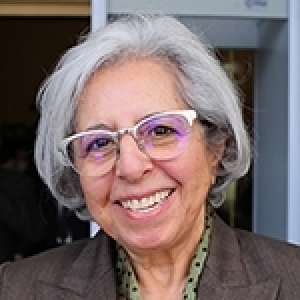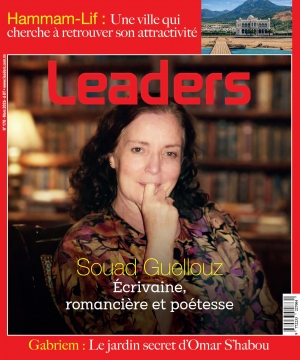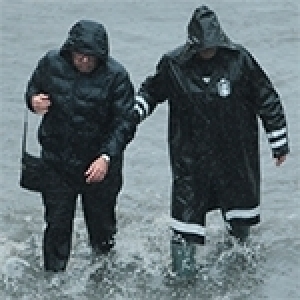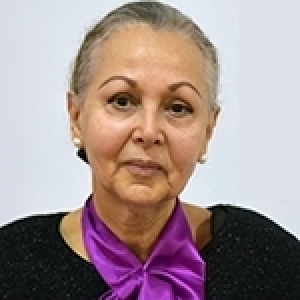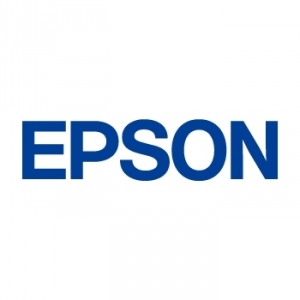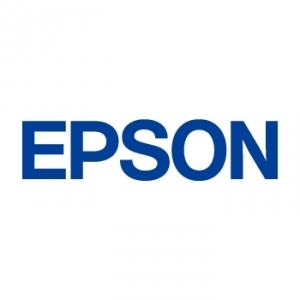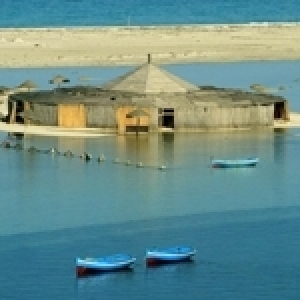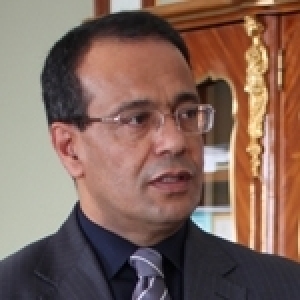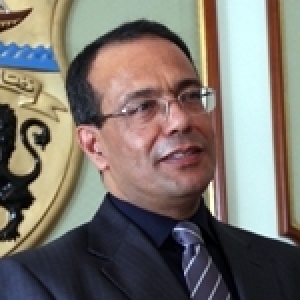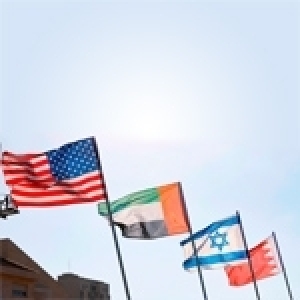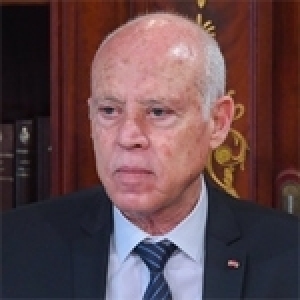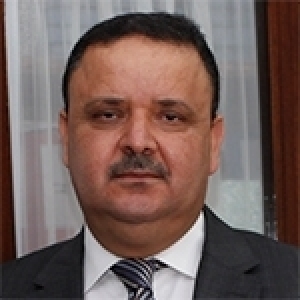“The way forward for the cooperation with Mediterranean partners: a view from the south”
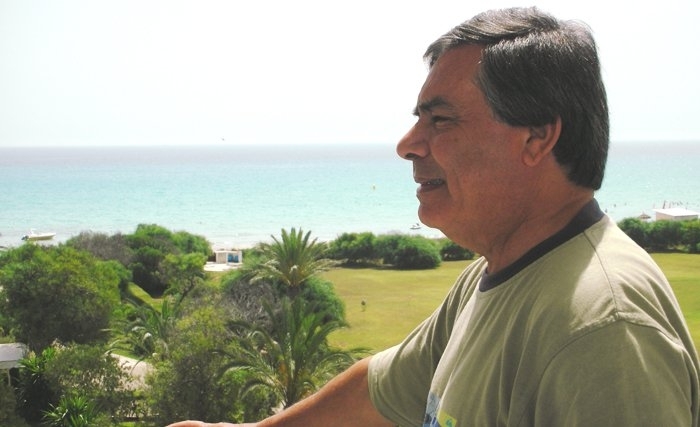
Had it not been for Malta’s insistence and the memorable diplomatic brinkmanship of the late P.M. Don Mintoff, the Mediterranean chapter of the Helsinki Final Act, would have probably not been incorporated in a document meant essentially for East-West relations.
For in the early seventies of the last century, at the time of the cold war, there was hardly any talk about Mediterranean Security Challenges.
Those who were privy to the consultations in preparation of the conference and all along the Helsinki process would now look back in admiration of the wise and diplomatic action displayed by the Maltese representatives.
The Mediterranean chapter states in its provisions that:
“(…) Security in Europe is to be considered in the broader context of world security and is closely linked with security in the Mediterranean area as a whole and that accordingly the process of improving security should not be confined to Europe but should extend to other parts of the world, and in particular to the Mediterranean area.”
Equally, the Participating States “declare their intention of maintaining and amplifying the contacts and dialogue as initiated by the CSCE with the non-participating Mediterranean States to include all the States of the Mediterranean, with the purpose of contributing to peace, reducing armed forces in the region and widening the scope of cooperation, ends in which all share a common interest, as well as with the purpose of defining further common objectives.”
Also, the participating states “would seek, in the framework of their multilateral efforts, to encourage progress and appropriate initiatives and to proceed to an exchange of views on the attainment of the above purpose.”
Though mute when it comes to the human dimension, this chapter lays the ground for cooperation in two main fields: security and development,which over the years did not witness a real breakthrough. Indeed, neither security nor development havematerialized south of the Mediterranean. This calls for an overall assessment of the process in order to improve it. In my view, no single party bears alone the blame and all have a share of responsibility in generating such insecurity and tension in the whole region. The way forward for the cooperation with the MPCs is not only a matter of improving the chapter on Mediterranean Partnership or consolidating the structures of dialogue, it entails a fundamental change in the perception of the Mediterranean region so as to upgrade its importance for the security and stability of Europe. Only then, could we progress on the way to a more fruitful cooperation based on interdependence and a common vision of security and development.
1. Overview of the current state of the OSCE Mediterranean dialogue
Over the years, the Mediterranean Partners for Cooperation have taken part increasingly in the OSCE activities and we can say that they are now associated to a multi faceted dialogue encompassing a whole range of issues of great importance to them.
a. The political dialogue
MPCs have access to the official documents of the Organization and are invited to its main meetings and functions including the summits and the survey conferences organized in preparation of the Summits.
They also attend the meetings at ministerial level such as the yearly meetings of the Ministerial Council.
They are equally entitled to attend the Permanent Council sessions and the meetings of the Forum for Security Cooperation; these two decision-making structures convene every week in Vienna.
Another feature, albeit symbolic, of the dialogue with MPC’s is the seating of these partners with the participating States at the head table since 2007, inrecognition of their contribution to the OSCE dialogue.
Furthermore, a decision was taken in 2010 at the Ministerial Council meeting of Athens to invite MPCs to contribute on a case-by-case approach to the Corfu process relating to European Security.
High-level meetings are also regularly organized between the partners for cooperation and the OSCE Troika, the Secretary General and the Parliamentary Assembly of OSCE on the sideline of its Ministerial Council.
Participation of MPCs in the OSCE dialogue allows them to speak before the decision-making bodies of the Organization and to share information with the participating States about developments in their respective countries and in their region.
b. Themes of the dialogue
Mention should be made in particular of the recurrence of themes such as the fight against Terrorism, the Security of boundaries, the Security sector reform, Good Governance and fight against Corruption, Management of Water Resources, environmental Security,human Trafficking, Migration, Tolerance and Non-discrimination.
Exchange of information and the use of the OSCE tool box are all the more important that the Southern Mediterranean region is in the throngs of dramatic events, following the “Arab Spring” upheavals.
c. Framework of the dialogue
The annual OSCE Mediterranean Conference is undoubtedly the main forum for Cooperation with the Mediterranean Partners and should be hosted normally by one of the countries involved in this partnership, which is not always the case at present for obvious political reasons.
The Conference offers a unique opportunity for an exchange of experiences and views on security in the OSCE region and in the partner States. This event also allows for high-level bilateral meetings and for civil Society activities on the sideline of the Conference.
Also featuring as a high moment of the dialogue, are the visits conducted by the OSCE Chairman in Office (CiO) or its Secretary General.
Another forum to maintain dialogue with MPCs at the level of Ambassadors is the Informal Mediterranean Contact Group, a subsidiary body of the Permanent Council created in 1994, which meets in Vienna about six times a year.
Daily contact between Participating States and Mediterranean Partners takes place in Vienna at the level of Contact points of the delegations on both sides.
d. Practical activities
The dialogue going on at the political level is complemented by OSCE expertise rendered available to Mediterranean Partners in a number of fields. Experts of the Organization could upon request exchange good practices with the partners and give them the benefit of OSCE experience in the realm of its activities. Observers from Mediterranean partners could join O.D.I.H.R Missions to observe elections. The partners can also designate members of their missions to take part in field operations or pay visits to such operations.
Furthermore, representatives from partner States including public officials, students, Civil Society people, can request to meet with OSCE experts in order to seek or exchange information,or to inquire about theprospects of cooperation and to take part to training sessions tailored to their specific needs.
Also, in the framework of confidence building measures, the OSCE encourages its partners to take part in the exchange of military and security information and other relevant activities. It equally offers to organize for the benefit of Mediterranean partners visits to military installations in the OSCE region.
This overview is not exhaustive but it shows, nonetheless, that there are opportunities for the Mediterranean partners to benefit from, if we can move beyond the traditionally Euro-centric format of the dialogue.
To achieve this, we need to improve the perception that the European neighbors have of the Mediterranean space, which in turn will lead to upgrading the cooperation.
2. The perception of the Mediterranean
We should recall that the Mediterranean as a water space has undergone a complete transformation in the perception of nations since the Second World War. It has evolved from an imperial transportation and communication route linking East and West and North and South, to a peripheral theater in the Cold War, to one of the most dangerous regions in the world today.
Because of a long era of neglect, foreign domination and fragmentation in this space, there was no real case to talk about a Mediterranean region.
Dealing with the theme of “regionality” in his “Global interdependence versus regional interdependence”, Reynolds M. Salerno underlines that “…Regionality has existed less in terms of the relationships between the different parts of the Mediterranean, or even in the subjective perception of most Mediterranean nations,than in the reckoning of such external competing world powers as were capable of treating it as a single geo-strategic entity. Consequently, and ironically, what has best defined the Mediterranean region in terms of international relations is not the complementarity of its component parts but, on the contrary, its being the converging point of global conflicts, with all the regional divisiveness that entailed. With one such outstanding global conflict, the Cold War terminated, it certainly does appear that disparity and adversity in the Mediterranean may have reached a critical level.”
Though some of us may not share this opinion, the dramatic events that unfolded in the last 15 years and further back, amply prove the negative perception attached to the Mediterranean.
In the MENA region, authoritarianism, poor governance, bad human rights records, lack of reforms … may have weighed heavily in the scales, but external factors ranging from intervention by global and regional powers to strategic interests and economic dominance by the mightiest, cannot be absolved either.
In the first half of the 1990s, among other initiatives, Western Security Organizations and strategists hurried to address themselves to the problems that might threaten European Security from the Mediterranean and decided that the upsurge of violent religious extremism was one such problem to face and the West was ultimately proven right on this. However, some theoreticians took advantage of this threat with a prominent religious tag to make the world believe that thereis a deep fracture between North and South in the Mediterranean. The attacks of 09/11, the invasion of Iraq, the events in Libya and Syria may well suggest that indeed there has been a fracture as extremism is expanding and the threat that was peripheral is now turning global.
Why this phenomenon came about and how it developed so rapidly to become a world threat, was the subject of an OSCE Security Days Conference on violent extremism and radicalization leading to terrorism organized in Vienna on May 20, 2015. The various speakers tried to shed light on the root causes of this phenomenon and came up with a number of causes that went from historical and religious conflicts to ethnic differences and socio-economic injustice.
A number of writers, North and South of the Mediterranean, took up the subject with a view to understanding this phenomenon. One such writer is Richard Whelan who published a book in 2005 under the title of “Al-Qaedaism, the threat to Islam, the threat to the World”; in what he calls a “tree of response to Al-Qaedaism” he suggests four actions, two of them urgent to consider and two of them, long term. The latter put forward the necessity to “deal with the negative impact / aspects of globalization” and to “help Islam succeed, to eliminate rage versus others and the assumption that the West is anti-Islam”.
Whelan is of the opinion that “the West needs to turn globalization from a threat into a hope to those in the developing world who currently view it as a Western plot to destroy their culture and seize their resources.”
He also thinks that in the longer term “the world needs to focus on those who support in varying degrees the objectives or actions of al-Qaedaists, particularly in countries that are currently going through significant economic / political dislocation. According to him, “al-Qaedaism is attempting to hijack Islam; the rest of the world needs to help the majority of Muslims resist this hijacking, restore their good name and attain a brighter future…”
A prerequisite to embarking on such a task is to change the West’s perception of the Mediterranean region so as to integrate the concerns of its countries in its own strategies. Some northern-European countries ordinarily show little interest in the Euro-Mediterranean dialogue because they estimate that the so-called threat from the South is far from their borders. The developments in the Middle East following the exacerbation of old conflicts and the flare-up of new ones, the overspill in Europe (hundreds of thousands of migrants and displaced people) and the shared threat of the Foreign Terrorist Fighters problem all demonstrate the growing interdependence and the commonality of broad security risks between the two sides.
Therefore, we can conclude that:
- Europe is equally targeted by violent extremism;
- that indifference to the woes of the Southern Mediterranean or underestimation of their impact in the medium and long terms on the Global security of the whole region, could be very costly in terms of instability and loss to the economy;
- That OSCE should launch a multifaceted action at home to improve the perception of the Mediterranean region;
- A similar action could be engaged to inform the Southern public opinion about the contribution of OSCE to stability in Europe and to consequently change the negative perception of the Organization as guardian of “fortress Europe”.
A better perception of the other will undoubtedly take long to materialize but it will facilitate the integration of the southern Mediterranean into a more balanced vision of global security.
There are, however, more immediate concerns for the partnership with the MPCs. These countries are supposed to act as a group, to cooperate and harmonize their positions within the Organization. The absence of such cooperation does have an impact on the group performance and further complicates the process of reform that might be envisaged in the future to improve the work of the structures.
3. Ideas for a future course of action
One way of proceeding to improve the partnership would be to tackle the political problem, which prevents the partners from acting as a group.
While the Organization is not the proper forum to address the Israeli- Palestinian problem, it is entitled, nonetheless, to address the question of partnership of the Palestinian Authority.
a. The Palestinian application for partnership and its relevance for confidence building in the Middle East
It is largely accepted that the ongoing Israeli-Palestinian conflict is a barrier to an integrated regional security and development policy in the Southern Mediterranean. Few will contest the fact that at the level of the partnership with OSCE, this reality strongly affects the work of the Mediterranean partners as a group. It is also common knowledge that the OSCE is not mandated to seek a solution to this chronic problem. However, its contribution to this process would be in the realm of confidence building, both between the parties to the conflict and between the Palestinians and the OSCE. As a matter of fact, confidence building is one of the ambitious objectives set by the section on the Mediterranean in the Helsinki Final Act and contributing to it would pave the way for a final solution to the problem. The OSCE cannot ignore any further the request of the Palestinians to join the MPCs group. Not only do they answer, in general, the informal criteria set by the Organization but also, as a player and a party directly involved in the most intractable conflict in the world, they deserve to be associated to questions pertaining to the security of the region.
The last few years have witnessed a series of developments embodied in the admission of Palestine as a full member of UNESCO and a non-member State in the United Nations. The Palestinian flag was raised on the building of the World Organization in an official ceremony at the opening of the ongoing session of the UNGA.
Furthermore, Palestine was admitted recently as a member of the International Criminal Court. The Palestinian request to become a partner, already introduced in 2004 and renewed in 2008, could possibly be reviewed in the light of these developments. Notwithstanding the consensus rule and the opinion aired by a number of participating States that such an application, if accepted, would bring in a controversial matter that might block the dialogue, the enlargement of the group of partners to the Palestinians would be seen as a confidence booster and an endeavor to lessen tensions in the Middle East.
Furthermore, it would balance the relationship of the OSCE with two partners whose opinions on Security and cooperation in the Middle East should equally be taken into consideration.
When the Helsinki Conference was launched in the late 1960s, Europe was divided in two military blocks and the Cold War was at its peak. The whole world lived in fear of being destroyed by a nuclear war. And yet, the Participating States managed, after a long and laborious process to reach consensus based on a set of principles highlighted in the Final Act. Three of the ten principles contained in the Declaration guiding the relations between Participating States underline respect of Human rights, self-determination of peoples and fulfillment in good faith of obligations under International law.
Would it not be worthwhile to apply these principles to the Palestinian case and finally remove a major barrier to an integrated regional security and development policy?
b. The enlargement of the group of MPCs and the necessity to set up formal criteria for partnership
As of now, only Libya and the Palestinian Authority have introduced a request for partnership on the basis of informal criteria developed by an equally informal working group in 2001. Spelling out clearly the conditions to join the MPCs group would make the process more predictable and transparent. In particular, elaborating on the criteria of “close relation with the OSCE” and “the sharing of OSCE’s principles” would be essential for future candidates to know as the partnership could probably extend further south of the Mediterranean at a later stage.
Enlargement of the group of MPCs would be indicative of the will of the OSCE to reach out to adjacent sub regions and to integrate them in its regional security and development policy. However, there are a few risks in this if the criteria are not spelled out clearly. The present composition of the group is not homogeneous as mentioned above, and expanding it to other countries in the region does not exclude the possibility of more rifts following the so-called “Arab Spring” movement inaugurated in Tunisia and the ushering of a process of democratic transition in a limited number of countries. At best, this development is looked at with circumspection in some parts of the Arab world, if not openly countered because of the values it brings to the scene.
Opening up channels of cooperation with a regional organization such as the League of Arab States would certainly allow the OSCE to reach out to other countries in the region albeit indirectly. The dialogue, however, will be limited to matters enjoying the consensus of all the members and will not go the full length desired by some states. That is why the Democratic transition in Tunisia needs the support of the OSCE at a time when the forces countering it, both inside the country and at the regional level, are gaining momentum. Its success would pave the way to similar experiences in the Arab world and promote further South the values of democracy, Human rights and good governance.
Its failure would confirm what the Tunisian Scholar Hamadi Redissi described as “L’exception Islamique” in his book bearing the same title published in 2005. A deteriorating economic situation could be a strong factor in delaying the transition or even aborting it; it is believed now that the violence pervading the MENA region is not motivated by the sole ideological factor but also by the socio-economic frustrations of the younger generations who find themselves with no future prospects.
c. The collective / individual approach of the partnership
Pending a breakthrough in the Israeli-Palestinian conflict and the advent of more democratic reforms on the Arab scene, the MPCs will unfortunately continue to sidetrack the collective action approach encouraged by the OSCE and promote instead individual agreements and actions with the Organization.
This is regrettable as other partnerships (Euro-Atlantic and Asian) work more in harmony between their members and use their input collectively to promote their interests.
Individual requests for cooperation by the MPCs are diverse and do not forcibly reflect a common ground or a unified outlook. They are occasional and irregular and do not fully take advantage of the toolbox available in the Organization. One way of breaking this pattern is to borrow from the European Union’s Neighborhood Policy Action Plan procedure, whereby the partners are entitled to negotiate with the European Commission a set of actions and projects extending on a number of years (usually five years). This approach would introduce more regularity in the work of the partners and allow more time for harnessing the financial resources needed to cover the costs. This idea seems to be largely accepted in the Group and some of the partners including Tunisia have introduced requests in this framework.
d. Reforming the structures of the dialogue
The Mediterranean chapter purports to achieve a number of objectives ranging from building confidence to promoting security and stability. These objectives called for the creation of structures, which did not figure in the Mediterranean Chapter. Thus, an informal Contact group and an annual Mediterranean conference were created for the MPCs who also were allowed access to the deliberations of the participating States in the Permanent Council, the Forum for Security Cooperation and other fora. Furthermore, they are invited to take part in the Operational aspects of cooperation by participating in election observation or seconding staff. They also take part in specialized events and prospects, which are workshops on particular issues of interest to them.
These structures and mechanisms, though important to maintain the ongoing dialogue between the participating States and the Mediterranean Partners, have not been up to the expectations of the latter who often express their dissatisfaction with the way they function:
• The Contact group, which is informal, does not allow access of the MPCs to decision making in the Organization. It is presided over by a participating State and uses a formalized agenda, which used to lack input from the MPCs. However, since the adoption in 2011 of the Vilnius MC decision on cooperation with the OSCE Partners, things have changed gradually.It is noteworthy that during the past couple of years, the chairmanships of the Group have encouraged a more proactive contribution of the MPCs who have been closely involved in the coordination of the Group’s meetings, the choice of the themes and concerns to be tackled and the selection of experts and panelists from their respective capitals.
What is requested by the partners is to share responsibilities so as to allow them some ownership of the process. They are particularly sensitive to the low level of attendance and representation from the participating States.
Suggestions to improve this structure range from exploring the possibility for MPCs tochair or co-chairthe Group to be empoweredwith some decision-making whenever possible, to create working groups under the aegis of the Contact group and particularly to be assured that a regular follow up would take place by participating States and Mediterranean partners alike through linkages with the permanent Council.
• The annual Conferences
They, in turn, suffer from similar situations and need to be reviewed for a better follow up with a view to achieving an action-oriented cooperation with MPCs upon their request.
• Access to the deliberations of the Participating States
The MPCs take part, as observers,inthe deliberations of the Permanent Council and the Forum for Security Cooperation and in the meetings of the Ministerial Council andin the Summits and other annual events. They have the right to speak but not to participate in decision-making. This may be right, considering the difficult process of decision-making in the OSCE and the difference in status between PS and MPCs but granting the latter some limited powers in matters directly linked to the Mediterranean dialogue and of particular relevance to them, would further strengthen the partnership.
e. New opportunities for partners in a process of democratic transition
Tunisia has benefited from the expertise of the office for Democratic Institutions and Human Rights (O.D.I.H.R) in the framework of the decision of the Permanent Council (1998) to allow MPCs to participate on a case-by-case basis in O.D.I.H.R election monitoring and supervision operations among other relevant activities. I must pay tribute to the Office for its practical support following the events of 2011 in particular for pursuing a number of projects at the request of my country whose impact on the democratic transition was very positive.
Opportunities in the realm of activities of O.D.I.H.R are open to the MPCs and would contribute to a better awareness of the comprehensive approach of the O.S.C.E.
Uneven interest by the Partners in such activities as made available should not discourage the Office. One way of raising awareness among MPCs about the mission of the Office would be to incorporate this dimension of the OSCE work in the individual Action Plans if they came to be adopted.
f. The problem of funding
The OSCE has no regular budget for projects and specialized events related to MPCs. Although the OSCE has created a “Partnership Fund”, the needed funds will have to be raised through extra budgetary voluntary contributions which are not readily available and may therefore cause delays and a lack of continuity in implementation.
Apart from the possibility of OSCE earmarkinga small budget on a yearly basis for those projects, and the voluntary contributions of PS and MPCs, there is an obvious need for decentralization as well as for partnerships with regional Organizations and the civil Society, whichcould assist in generating the needed resources.
Interest for the Mediterranean issues is certainly shared by many organizations, the most prominent of which are the European Union, NATO and the Council of Europe; and even though some of them conduct their own Mediterranean dialogue or partnership and may not be willing to pool efforts and resources, there might be room for cooperation and sponsorship.
Conclusion
The vision voiced in the December 2010 Astana Summit for a new Security architecture in the OSCE zone would have little chance to be achieved in the absence of a clearly spelled out political will recognizing not only the close linkage between the security of the neighboring regions and the OSCE’s own security but also the critical need tointegratea negotiated concept of the Mediterranean dimension of security within the aforementionednew architecture.It goes without saying that the MPCs have to be involved closely in the negotiation process of that concept. This would constitute a significant contribution on the occasion of the Helsinki + 40 celebration.
A better perception of the Mediterranean space, more solidarity and interaction with its nations, engaging resolutely the conflicts in the region on the basis of International law and the principles highlighted in the relevant UN resolutions and in the Helsinki Final Act, would contribute greatly to removing the political and cultural barriers to an integrated regional security and development policy.
Mohamed Lessir,
Former Ambassador of Tunisia and Chairman of “Cercle Diplomatique”.
- Ecrire un commentaire
- Commenter



